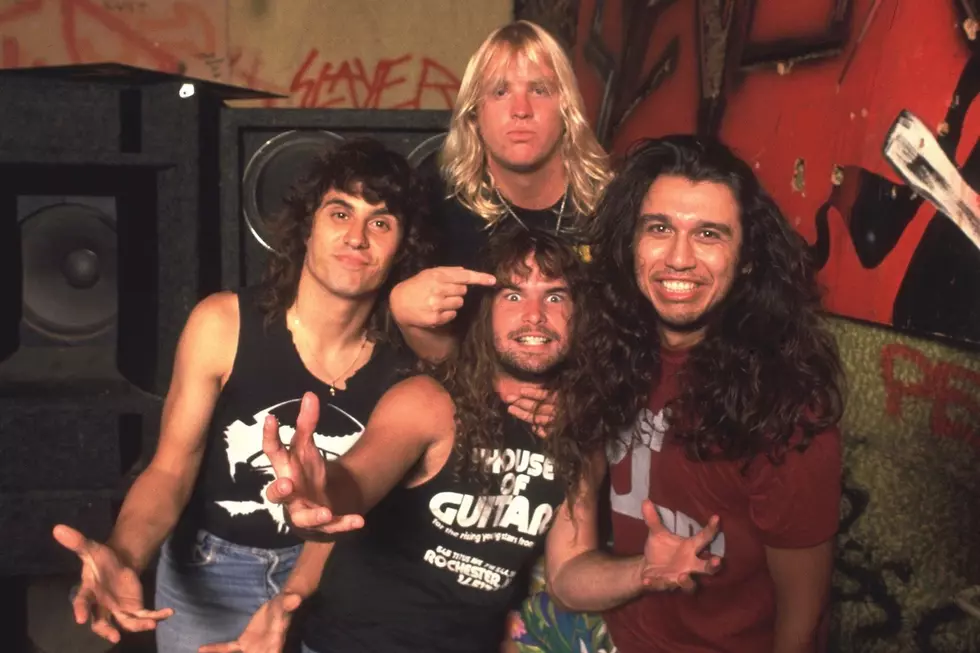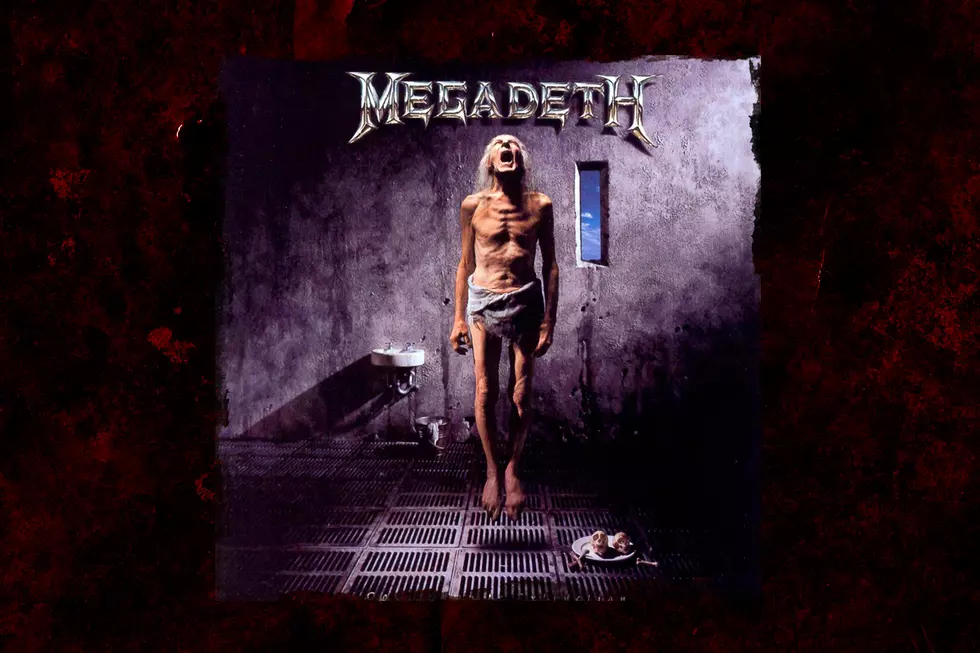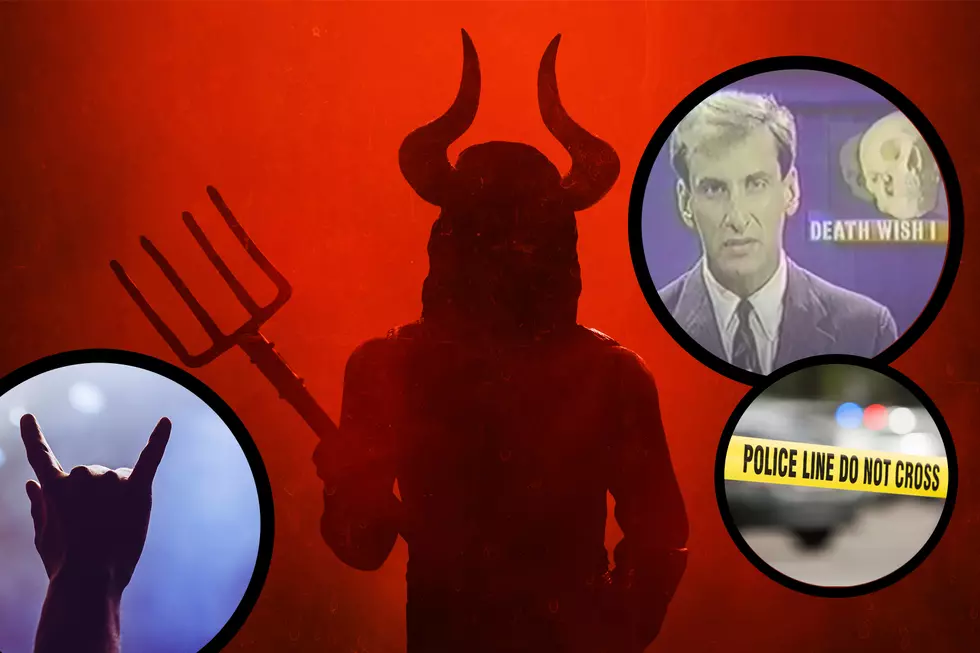
44 Years Ago: Black Sabbath Fire Ozzy Osbourne
It’s no secret that Black Sabbath were in a state of disrepair when they toured in support of the album Never Say Die! in the summer of 1978. Aside from being perpetually wrecked on alcohol and cocaine, the band members were supporting a record they weren’t proud of and the disc wasn’t well received. And they were being blown off the stage every night by the younger, more fiery Van Halen, who had just released Van Halen II and were about to usher in a new wave of melodic hard rock and virtuoso guitar playing.
When Sabbath returned home their spirits were shot, and they sought solace by upping the ante on their drug and alcohol abuse. Not only was Never Say Die! a disappointment, its predecessor, 1976’s meandering Technical Ecstasy, was also poorly received. The rejection was especially hard for vocalist Ozzy Osbourne.
Before he joined Black Sabbath he was physically and mentally abused by his family and peers. It wasn’t until he fronted Sabbath that he developed a level of confidence and self-worth. Suddenly, he was questioning his value again and his fear made him reluctant to work on a new album with Black Sabbath. Instead, he drank, did drugs and made excuses why he couldn’t sing. On April 27, 1979, after various attempts to get Ozzy back on the team, Black Sabbath fired their lead singer.
“We just couldn’t continue with Ozzy,” guitarist Tony Iommi said. “As much as everyone wanted us to, we just couldn’t do it. Nothing was happening and it would have meant the end of the band. We didn’t want to fire him but we had to if we wanted to continue.”
Osbourne’s dismissal didn’t come out of the blue. In 1978, Black Sabbath rented a house in Los Angeles to start writing the follow-up to Never Say Die! They converted the garage into a studio and started to jam. But as soon as they started to come up with music, Ozzy disappeared. For six weeks, no one knew where he was.
“Ozzy was going to clubs and getting really out of it and not coming home,” Iommi said for the book Louder Than Hell: The Definitive Oral History of Metal. “It got to a stage where nothing was happening with him. He came apart on us.”
With Ozzy missing in action, the rest of the band felt handicapped. They could have written the album without him, and in fact, that’s what Geezer Butler, who had quit taking drugs in 1976, wanted to do. But Iommi used Ozzy’s absence as an excuse to get drunk and high, and drummer Bill Ward didn’t need an excuse. Like Ozzy, he was drunk all the time. The difference was, he didn’t leave the house and could at least prop himself behind the drums when the band decided to try writing. Even when Ozzy returned to the house, he was too trashed to sing.
“I’d have to go over to [Warner Bros.] and they’d say, ‘How’s the album coming?’ and I’d go, ‘Oh, great, great.” I had to face those people knowing full well that we hadn’t anything to play them. It got to the point where the other guys said, “Well, look. If we don’t do anything, we’re gonna break up. We can’t stand it. We’re gonna leave.’ So that was the decision between the three of us. We said we’re going to have to replace Ozzy.”
After a couple months it became clear that nothing was going to get done until the band had a functional singer to work with. Since Ward and Ozzy had been the “drug commandos” who spent the most time together, Iommi and Butler decided Ward should break the news to Ozzy that he was being kicked out. In his book, "I Am Ozzy," Osbourne says he felt like he was shoehorned out of the band and that Iommi wanted to punish him for his disappearing acts.
“I’d had the feeling in the studio for a while that Tony was trying to wind me up by getting me to sing takes over and over again, even though there was nothing wrong with the first one.”
Osbourne added that when he was falling apart the other members of Black Sabbath should have stuck by him instead of kicking him to the curb, especially since they, themselves weren’t exactly sober.
“I’d be lying if I said I didn’t feel betrayed by what happened with Black Sabbath,” he wrote. “We were four blokes who’d grown up together a few streets apart. We were like family, like brothers. And firing me for being f---ed up was hypocritical bulls--t. We were all f---ed up. If you’re stoned and I’m stoned and you’re telling me that I’m fired because I’m stoned how can that be? Because I’m slightly more stoned than you are?”
Loudwire contributor Jon Wiederhorn is the author of Raising Hell: Backstage Tales From the Lives of Metal Legends, co-author of Louder Than Hell: The Definitive Oral History of Metal, as well as the co-author of Scott Ian’s autobiography, I’m the Man: The Story of That Guy From Anthrax, and Al Jourgensen’s autobiography, Ministry: The Lost Gospels According to Al Jourgensen and the Agnostic Front book My Riot! Grit, Guts and Glory.
Was Black Sabbath Firing Ozzy Osbourne a Blessing in Disguise?
Black Sabbath Albums Ranked
More From Noisecreep










